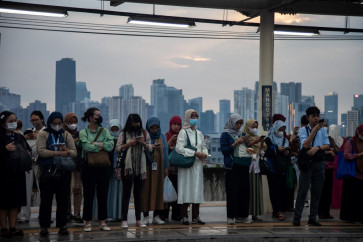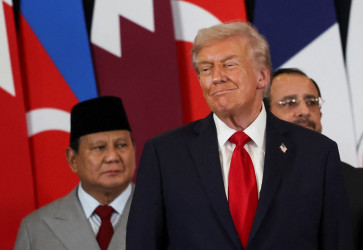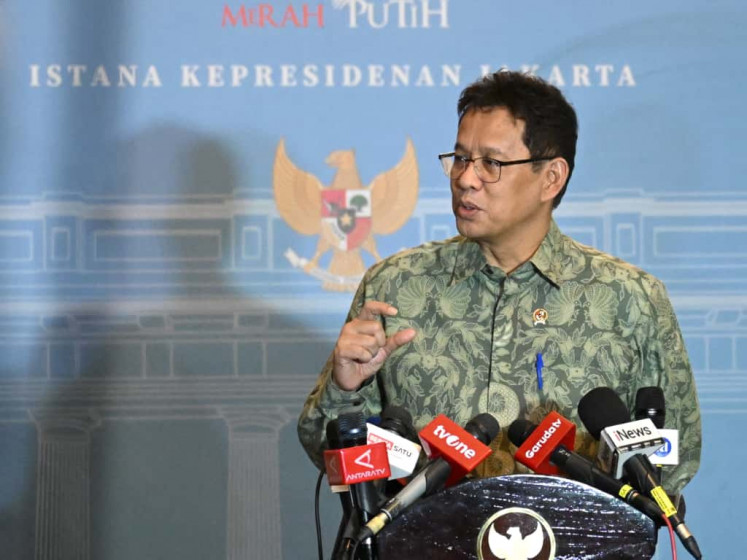Popular Reads
Top Results
Can't find what you're looking for?
View all search resultsPopular Reads
Top Results
Can't find what you're looking for?
View all search resultsUlema to take a close look at yoga
Mushrooming yoga centers across the country will have to prepare for the arrivals of clerics from the Indonesian Ulema Council (MUI), which is currently scrutinizing the practices of the Hindu-influenced exercise regime
Change text size
Gift Premium Articles
to Anyone
Mushrooming yoga centers across the country will have to prepare for the arrivals of clerics from the Indonesian Ulema Council (MUI), which is currently scrutinizing the practices of the Hindu-influenced exercise regime.
The council said Wednesday its members will visit yoga exercise centers this week to gather first-hand information before making a decision on whether to ban Muslims from participating.
"We already met to discuss it and we decided to investigate by visiting yoga centers to see how many Muslims are participating and how they do it," MUI deputy chair Ma'ruf Amin told The Jakarta Post.
He said the yoga center inspections will involve all MUI branch offices in provinces, cities and regencies around the country.
Should the investigation find the routines and exercise classes contain Hindu rituals and ideas of polytheism, the MUI would issue a fatwa to ban Muslims from taking part, he said.
"It may mean that yoga could harm Muslims' belief," Ma'ruf added.
The MUI's move came following a surprise decision last week in Malaysia. That country's National Fatwa Council, which has the authority to rule over how Muslims practice their faith, has forbidden Muslims from practicing yoga.
MUI deputy chair of the fatwa commission, Ali Mustafa Yakub, said Indonesian Muslims have so far been allowed to practice yoga as it is not clear how popular it is.
Yakub said he was sure Indian or Hindu influences in Indonesia were not as strong as in Malaysia, arguing the influence was limited to dangdut, popular music that draws on Arab and Indian trends.
Another MUI deputy chair Amidhan shared Ma'ruf's views, saying any future decision to ban yoga should not be seen as an intolerant move against Hindus.
"If we find that it's just a sport, we won't issue any edict against it. If we do, we're only trying to protect Muslims from being intoxicated by influences that could corrupt their beliefs," he said.
Hundreds of yoga classes with thousands of participants have emerged throughout the country since the 1998 financial crisis, with many participants regarding yoga as a way of relieving stress and frustration.
Visits by MUI clerics to yoga centers would undoubtedly inconvenience its practitioners, who come from different religions.
Singer and actress Widi AB Three is one such Muslim yoga devotee, who was undeterred by the current controversy, saying she would continue doing it because she felt many healthy advantages from the practice.
"I think our relationship with God is a personal matter. Every single person has his or her own space for God in the heart. I see no problem with practicing yoga," the singer told the Post recently.
Indonesian analysts and moderate Muslims have said the fatwa banning yoga in Malaysia reflects a growing strain of conservatism there.
They expressed concerns that the MUI could ban yoga as further evidence that conservatism has been taking root in Indonesia, adding to the recent passage of a controversial pornography bill and the enforcement of sharia-based ordinances in many regions.










